Learned Helplessness
A Maladaptive Coping Mechanism And Learned Belief
Principal Category: Coping Mechanisms
Authors:
• Vianey Gonzalez B.Sc(Psych) – Licensed Psychologist, Specialty in Crime Victim Trauma Therapy, Neuropsychologist, Certified Deception Professional, Psychology Advisory Panel & Director of the Society of Citizens Against Relationship Scams Inc.
• Tim McGuinness, Ph.D. – Anthropologist, Scientist, Polymath, Director of the Society of Citizens Against Relationship Scams Inc.
Overcoming learned helplessness is crucial for scam victims to regain control and recover from their trauma. Self-help strategies include recognizing and acknowledging feelings of powerlessness, challenging negative thoughts, setting small, achievable goals, and seeking support from friends, family, or support groups. Engaging in mindfulness and relaxation techniques can reduce anxiety while educating oneself about learned helplessness empowers change. Overcoming learned helplessness independently can rebuild a sense of control and resilience, especially when professional help is inaccessible, aiding victims in reclaiming their confidence and autonomy.

Learned Helplessness Theory – Understanding Its Impact on Scam Victims During and After the Ordeal
What is Learned Helplessness Theory
Learned helplessness theory, developed by psychologist Martin Seligman, explains how individuals may develop a sense of powerlessness after repeatedly experiencing uncontrollable and adverse events. Initially observed in animal studies, where subjects were exposed to unavoidable stressors, the theory suggests that individuals eventually stop trying to escape or change their situation, even when opportunities to do so are available. This behavior stems from the belief that their actions have no effect on outcomes, leading to a passive acceptance of their circumstances and often contributing to depression and other mental health issues.
Learned helplessness is behavior typical of a human or animal and occurs when a human or an animal endures repeatedly painful or otherwise aversive stimuli that it is unable to escape or avoid.
After such experience, the organism often fails to learn or accept “escape” or “avoidance” in new situations where such behavior would likely be effective. In other words, the organism learned that it is helpless in situations where there is a presence of aversive stimuli and has accepted that it has lost control, and thus gives up trying. Such an organism is said to have acquired learned helplessness.
In Seligman’s experiments, dogs exposed to unavoidable electric shocks eventually stopped attempting to escape, even when escape was possible. Very similar behaviors were exhibited by NAZI Death Camp inmates during World War II. They had learned that their actions had no impact on their environment, leading to passive and resigned behavior. This theory was later applied to human psychology, suggesting that people who experience persistent failure or trauma may develop a similar sense of helplessness. They start to believe that they cannot control their circumstances, leading to withdrawal, apathy, and even depression.
Simply put: learned helplessness is a deeply held profoundly negative belief – a kind of conditioning.
Learned Helplessness In Scam Victims
In the context of relationship scams, learned helplessness can profoundly impact victims. These scams often involve prolonged manipulation and emotional abuse, where scammers use deceit, guilt, and psychological pressure (psychological enslavement) to exploit their targets.
Victims of relationship scams frequently experience repeated emotional manipulation, both positive and negative (including threats,) leading to a gradual erosion of their self-efficacy and confidence.
As the scam progresses, victims typically do not understand that it is a scam but do understand that it is a very controlling relationship, but often, their efforts are met with further deception and exploitation. Often they grow resistant to sending more money, but a combination of cognitive biases and manipulative abuse compel them to go forward. This cycle of failed attempts reinforces the belief that they are powerless to change their situation and they just need to do what the criminal wants, very much like a domestic abuse relationship.
Over time, victims may stop trying to extricate themselves from the scam and comply, resigning themselves to their perceived helplessness.
After the Scam Ends
After a scam ends, learned helplessness can manifest in various detrimental ways. Victims can experience persistent feelings of powerlessness and low self-esteem, believing that no matter what actions they take, they will not be able to change their situation or avoid future scams. This can be easily confused with denial.
This mindset can lead to withdrawal from social activities, reluctance to seek help, and increased vulnerability to further exploitation. Victims might also struggle with trust issues, finding it difficult to believe in the goodwill of others, which can impact their relationships and overall mental health. Additionally, the trauma from the scam can contribute to anxiety, depression, and a pervasive sense of hopelessness, hindering their ability to move forward and recover fully.
Scam Victim Recovery
Impact on Mental Health
This learned helplessness can have devastating effects on a victim’s mental health, leading to anxiety, depression, and a deep sense of worthlessness. The scammer’s continuous control and manipulation create an environment where the victim feels trapped and unable to seek help. Even when external assistance becomes available, the victim’s belief in their own helplessness can hinder their ability to take proactive steps toward recovery.
Recognizing Learned Helplessness
Learned helplessness, a psychological condition resulting from repeated exposure to uncontrollable and aversive events, can be recognized or diagnosed through several signs. These include:
A pervasive sense of powerlessness, low self-esteem, and a belief that one’s actions are futile in changing their situation.
Victims may exhibit passive behavior, reluctance to seek help, and a general withdrawal from activities they once enjoyed.
Additionally, they often experience chronic stress, anxiety, depression, and a lack of motivation.
In social contexts, learned helplessness may manifest as difficulty in making decisions, an inability to trust others, and challenges in maintaining healthy relationships.
These signs highlight the profound impact of learned helplessness on an individual’s psychological well-being and daily functioning.
Different than Denial
Learned helplessness and denial are two distinct psychological responses to adverse situations. Learned helplessness arises when an individual repeatedly experiences uncontrollable and negative events, leading to a pervasive sense of powerlessness and the belief that they cannot influence outcomes. This results in passivity, depression, and a lack of motivation.
In contrast, denial is a defense mechanism where an individual refuses to acknowledge the reality of a distressing situation. Rather than feeling powerless, the person in denial unconsciously avoids or rejects the facts of the situation to protect themselves from emotional pain.
While learned helplessness involves acceptance of one’s perceived inability to change one’s circumstances, denial involves an active rejection of reality. Both responses can have significant impacts on an individual’s mental health and behavior but stem from different cognitive and emotional processes.
Learned Helplessness & Perceived Social Stigma
The social stigma associated with being scammed can expand these feelings of helplessness. Victims blame themselves for their situation, further reinforcing their sense of powerlessness. They might fear judgment from others, leading to isolation and a reluctance to seek support from friends, family, or professional services.
Countering Learned Helplessness
Addressing learned helplessness in victims of relationship scams requires a multifaceted approach. Psychological interventions, such as cognitive-behavioral therapy (CBT), can help victims reframe their beliefs about control and efficacy. Support providers can provide a safe space for victims to share their experiences and rebuild their sense of self-worth. Education about scams and resilience-building strategies can also empower victims to recognize their own agency and take steps to protect themselves in the future.
Overcoming Learned Helplessness: A Self-Help Guide
Based on the above, learned helplessness is a psychological condition where individuals believe they have no control over their circumstances, leading to a pervasive sense of powerlessness. This can severely impact one’s mental health, making it critical to take steps to regain control and build resilience.
Why a Scam Victim Might Want to Overcome Learned Helplessness on Their Own?
Scam victims might prefer to try to overcome learned helplessness independently for several reasons.
First, self-reliance can help to rebuild a sense of control and empowerment, crucial for rebuilding confidence and autonomy after the disempowering experience of a scam.
Second, overcoming learned helplessness on their own can be a practical necessity if access to professional help is limited due to financial, geographic, or other constraints.
Third, personal growth and resilience are often strengthened through self-guided recovery, equipping victims with the skills and mindset to face future challenges more effectively.
Step 1: Understanding Learned Helplessness
Before tackling learned helplessness, it’s important to recognize its signs:
-
- Persistent feelings of helplessness or powerlessness
- Avoidance of challenges or new experiences
- Low self-esteem and self-worth
- Difficulty making decisions
- Increased anxiety and depression
Step 2: Overcome Learned Helplessness
Recognize and Acknowledge Your Feelings: Acknowledge the feelings of helplessness without judgment. Understand that these feelings are a learned response, not a reflection of reality.
Challenge Negative Thoughts: Identify and challenge negative beliefs about your abilities and situation. Replace them with positive affirmations and realistic appraisals of your strengths.
Set Small, Achievable Goals: Break tasks into smaller, manageable steps. Achieving these small goals can help build confidence and a sense of control.
Develop Problem-Solving Skills: Focus on developing problem-solving skills. Practice identifying problems, brainstorming solutions, and implementing them. This reinforces the belief that you can affect change.
Seek Support: Reach out to friends, family, or support groups. Sharing your experiences and receiving encouragement can boost your morale and provide new perspectives.
Practice Self-Compassion: Be kind to yourself. Understand that overcoming learned helplessness is a process and it’s okay to take small steps.
Engage in Mindfulness and Relaxation Techniques: Techniques such as meditation, deep breathing, and yoga can help reduce anxiety and improve mental clarity.
Educate Yourself: Learn about learned helplessness and how it affects your behavior and thinking patterns. Knowledge can empower you to make conscious changes.
Seek Professional Help: If self-help strategies are not enough, consider seeking help from a therapist or counselor who can guide you through cognitive-behavioral techniques to overcome learned helplessness.
Maintaining Progress
Reflect Regularly: Periodically reflect on your progress and adjust your strategies as needed.
Celebrate Successes: Acknowledge and celebrate your achievements, no matter how small, to reinforce your progress.
Summary
Learned helplessness theory provides a framework for understanding an aspect of the psychological impact of relationship scams on victims.
Overcoming learned helplessness is a journey that requires patience, persistence, and self-compassion. By taking proactive steps to challenge negative beliefs and regain control, you can break free from the cycle of helplessness and lead a more empowered and fulfilling life.
By recognizing the signs of learned helplessness and implementing supportive interventions, it is possible to help victims regain a sense of control and move forward to recovery.
Remember, help is always available, and reaching out is a sign of strength, not weakness.
More:
- Learned helplessness – Wikipedia
- Learned helplessness: Examples, symptoms, and treatment (medicalnewstoday.com)
- Learned Helplessness – an overview | ScienceDirect Topics
- Learned Helplessness at Fifty: Insights from Neuroscience – PMC (nih.gov)
- Learned Helplessness: Seligman’s Theory of Depression (simplypsychology.org)
IMPORTANT NOTE: This article is intended to be an introductory overview of complex psychological, neurological, physiological, or other concepts, written primarily to help victims of crime understand the wide-ranging actual or potential effects of psychological trauma they may be experiencing. The goal is to provide clarity and validation for the confusing and often overwhelming symptoms that can follow a traumatic event. It is critical to understand that this content is for informational purposes only and does not constitute or is not a substitute for professional medical advice, diagnosis, or treatment. If you are experiencing distress or believe you are suffering from trauma or its effects, it is essential to consult with a qualified mental health professional for personalized care and support.

Welcome to the SCARS INSTITUTE Journal of Scam Psychology
A Journal of Applied Scam, Fraud, and Cybercrime Psychology – and Allied Sciences
A dedicated site for psychology, victimology, criminology, applied sociology and anthropology, and allied sciences, published by the SCARS INSTITUTE™ – Society of Citizens Against Relationship Scams Inc.
TABLE OF CONTENTS
A Question of Trust
At the SCARS Institute, we invite you to do your own research on the topics we speak about and publish, Our team investigates the subject being discussed, especially when it comes to understanding the scam victims-survivors experience. You can do Google searches but in many cases, you will have to wade through scientific papers and studies. However, remember that biases and perspectives matter and influence the outcome. Regardless, we encourage you to explore these topics as thoroughly as you can for your own awareness.
Please Leave A Comment
Recent Comments
On Other Articles
[better_recent_comments number=”5″ format=”{avatar} on {post}: “{comment}” {date}” avatar_size=”20″]
A Note About Labeling!
We often use the term ‘scam victim’ in our articles, but this is a convenience to help those searching for information in search engines like Google. It is just a convenience and has no deeper meaning. If you have come through such an experience, YOU are a Survivor! It was not your fault. You are not alone! Axios!
Statement About Victim Blaming
Some of our articles discuss various aspects of victims. This is both about better understanding victims (the science of victimology) and their behaviors and psychology. This helps us to educate victims/survivors about why these crimes happened and to not blame themselves, better develop recovery programs, and to help victims avoid scams in the future. At times this may sound like blaming the victim, but it does not blame scam victims, we are simply explaining the hows and whys of the experience victims have.
These articles, about the Psychology of Scams or Victim Psychology – meaning that all humans have psychological or cognitive characteristics in common that can either be exploited or work against us – help us all to understand the unique challenges victims face before, during, and after scams, fraud, or cybercrimes. These sometimes talk about some of the vulnerabilities the scammers exploit. Victims rarely have control of them or are even aware of them, until something like a scam happens and then they can learn how their mind works and how to overcome these mechanisms.
Articles like these help victims and others understand these processes and how to help prevent them from being exploited again or to help them recover more easily by understanding their post-scam behaviors. Learn more about the Psychology of Scams at www.ScamPsychology.org
Psychology Disclaimer:
All articles about psychology, neurology, and the human brain on this website are for information & education only
The information provided in these articles is intended for educational and self-help purposes only and should not be construed as a substitute for professional therapy or counseling.
While any self-help techniques outlined herein may be beneficial for scam victims seeking to recover from their experience and move towards recovery, it is important to consult with a qualified mental health professional before initiating any course of action. Each individual’s experience and needs are unique, and what works for one person may not be suitable for another.
Additionally, any approach may not be appropriate for individuals with certain pre-existing mental health conditions or trauma histories. It is advisable to seek guidance from a licensed therapist or counselor who can provide personalized support, guidance, and treatment tailored to your specific needs.
If you are experiencing significant distress or emotional difficulties related to a scam or other traumatic event, please consult your doctor or mental health provider for appropriate care and support.
Also, please read our SCARS Institute Statement About Professional Care for Scam Victims – here
If you are in crisis, feeling desperate, or in despair please call 988 or your local crisis hotline.
SCARS Institute Resources:
- If you are a victim of scams go to www.ScamVictimsSupport.org for real knowledge and help
- Enroll in SCARS Scam Survivor’s School now at www.SCARSeducation.org
- To report criminals visit https://reporting.AgainstScams.org – we will NEVER give your data to money recovery companies like some do!
- Sign up for our free support & recovery help by https://support.AgainstScams.org
- Follow us and Find our podcasts, webinars, and helpful videos on YouTube: https://www.youtube.com/@RomancescamsNowcom
- SCARS Institute Songs for Victim-Survivors: https://www.youtube.com/playlist…
- See SCARS Institute Scam Victim Self-Help Books at https://shop.AgainstScams.org
- Learn about the Psychology of Scams at www.ScamPsychology.org
- Dig deeper into the reality of scams, fraud, and cybercrime at www.ScamsNOW.com and www.RomanceScamsNOW.com
- Scam Survivor’s Stories: www.ScamSurvivorStories.org
- For Scam Victim Advocates visit www.ScamVictimsAdvocates.org
- See more scammer photos on www.ScammerPhotos.com


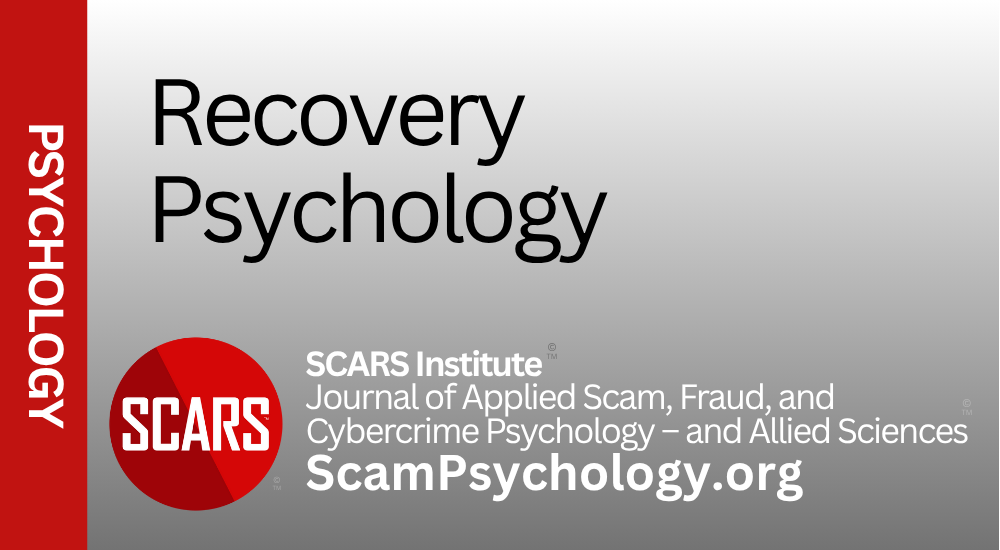
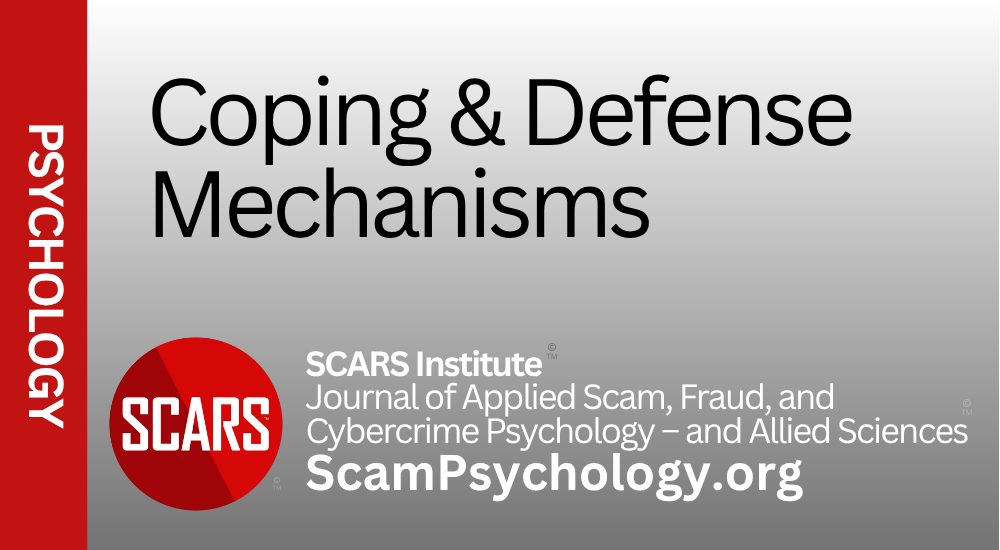
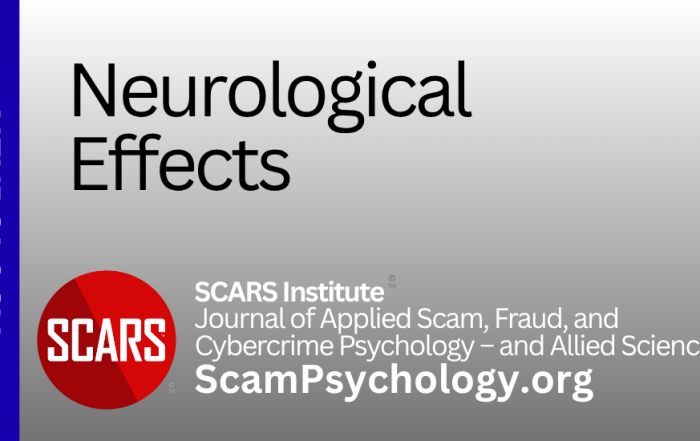

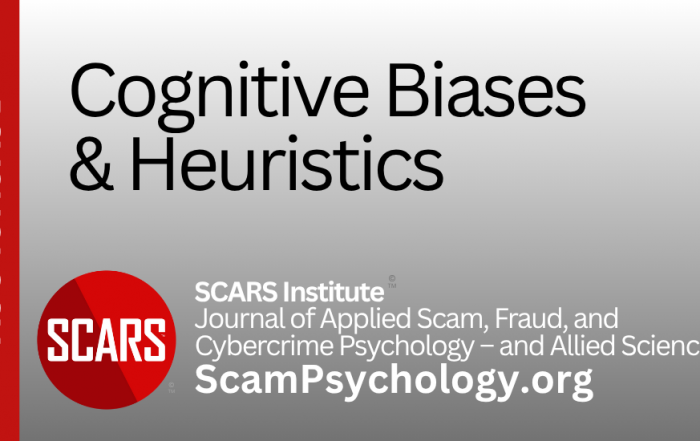
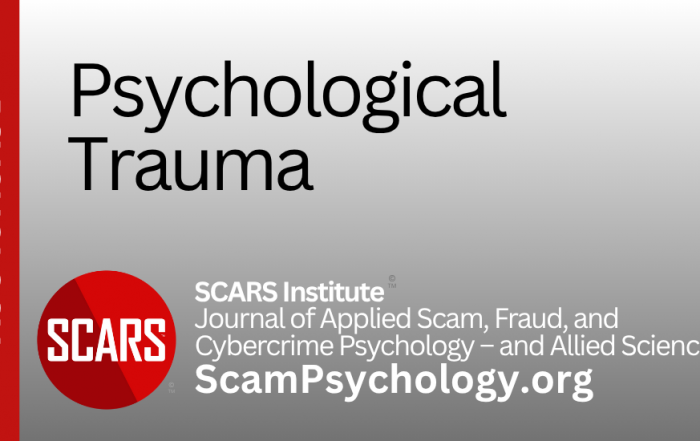
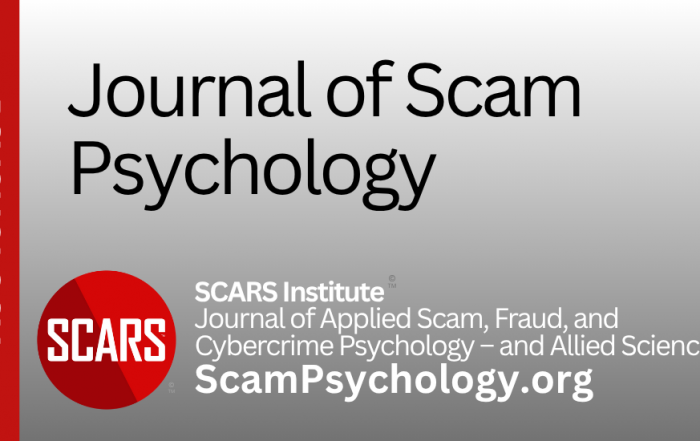
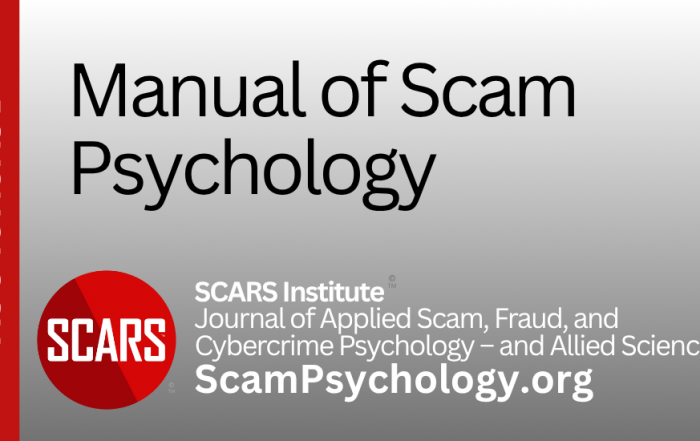

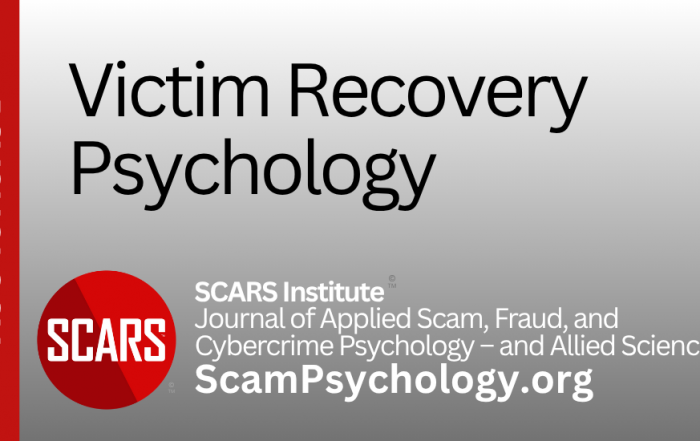
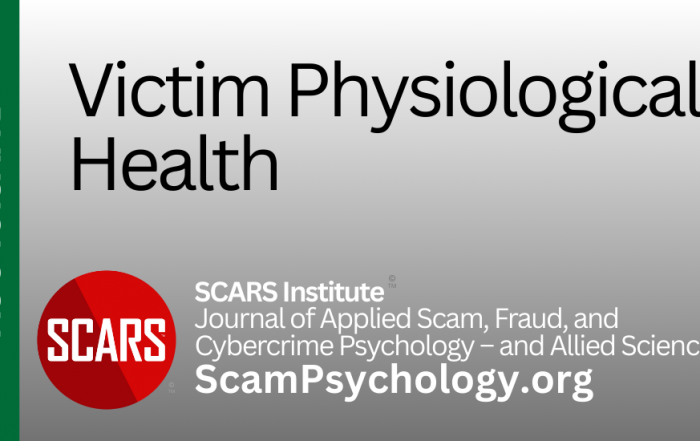

![niprc1.png1_-150×1501-11[1]](https://scampsychology.org/wp-content/uploads/2025/05/niprc1.png1_-150x1501-111.webp)
Life is always going to be challenging. Surrender is not an option.